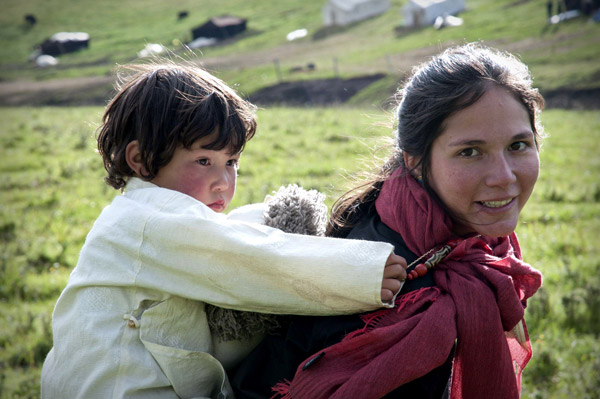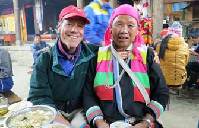Yaks for haute couture
 |
|
Dechen Yeshi and her daughter at the Zorge Ritoma village in Gansu province. Photos provided to China Daily |
My China Dream | Dechen Yeshi
She is a social entrepreneur who wanted to do something to improve the lot of her father's people. The answer was always right under the noses of the nomadic Tibetans, as she tells Lin Qi.
For generations, the villagers of Zorge Ritoma on the eastern edge of the Qinghai-Tibet Plateau had depended on raising yaks as their major source of income. Overgrazing, however, had gradually desiccated their livelihood as nomads.
| In love with Yunnan |
| Grandpa from Arizona |
Many of the able-bodied among them are abandoning the harsh realities of herding for a more tempting urban life. The village, filled with old people unwilling to leave and their grandchildren, seem doomed to face a bleak future.
That is, until they were told one day that the fine fibers from their young yak's may be the answer to a brighter outlook. Eight years later, the luxurious yak wool they are producing is keeping them warm and fed and linked, surprisingly, to the haute couture realm half a world away.
The woman who brought about these changes is Dechen Yeshi, 30, who manages a social enterprise called Norlha in Zorge Ritoma which hand-processes yak wool and sell it to fashion houses in Paris.
"We want to make sure that people who collect fibers and turn them into luxury products are local Tibetans," Yeshi says, "and that the profit would go solely to the villagers — a big challenge for the workshop, but that's also what sets us apart from other producers."
Born to a Tibetan father and an American mother, Yeshi majored in Asian studies and film at Connecticut College. Upon graduation, she decided to make a documentary about the land her father came from, with a "very romantic idea" of filming Tibetan lifestyles against a scenic background and promoting Tibetan culture to the world.
Her mother, Kim Yeshi, bought her a camera and entrusted Dechen with a more practical mission — collecting khullu, the dense fibers that were naturally shed by two-year-old yaks and had never been used by nomads.
























